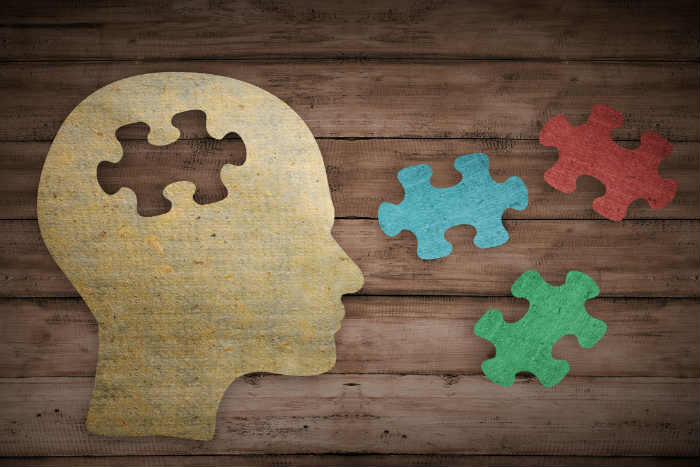











Intelligence is one of the most talked-about subjects in psychology. What comes to mind when you think of intelligence? Is it the accumulation of facts? Or, the ability to solve complex puzzles? Intelligence is more complicated than that. There are two main types of intelligence: crystallized and fluid. In the 1940s, psychologist Raymond B. Cattell came up with these concepts.

Cattell, together with his student John Horn, developed the Cattell-Horn theory of fluid and crystallized intelligence. This theory proposes that a person’s intelligence consists of different abilities that work together to form overall intelligence.[1]
Crystallized intelligence is the ability to use information and skills that one has gained through experience or learning. It relies on previously acquired knowledge. Crystallized intelligence is reflected in your vocabulary, general knowledge, and memory. This type of intelligence increases with age. Standardized tests measure crystallized intelligence.
Examples of crystallized intelligence include:
Fluid intelligence involves using logic to solve unfamiliar or novel problems. Fluid intelligence is independent of acquired knowledge. Fluid knowledge also includes the ability to identify relationships and patterns that are involved in novel problems and arrive at a solution using logic. Abstract thinking and problem-solving ability play a big part in fluid intelligence.
Here are a few examples of fluid intelligence:
Both types of intelligence are equally essential. When figuring out how much something costs after a discount, you need crystallized intelligence to recall basic math facts. However, fluid intelligence is just as important in everyday life. Without it, you wouldn’t be able to solve problems that you’ve never encountered before.
That being said, you do need crystallized intelligence to operate your fluid knowledge. For example, let’s imagine that you work in a large advertising firm. Your boss wants you to come up with a new advertising campaign for a client. In this scenario, you are solving a new problem using fluid intelligence. However, you use previously acquired facts to do so. You must have some advertising knowledge to develop the campaign. This shows how crystallized and fluid intelligence are interwoven.
Both crystallized and fluid intelligence change throughout life. So, at what age does intelligence peak? It’s later than you might think. Although many people believe that intelligence is highest in adolescence or early adulthood, that is not completely true. You might not reach your best in certain areas until your 6th or 7th decade of life.
In one study, conducted jointly with scientists from the Massachusetts Institute of Technology and Massachusetts General Hospital, participants’ performance on cognitive tests was assessed at various ages. The study found that different types of intelligence peaked at different ages. Processing speed was highest at 18-19 years old. Short-term memory is the strongest at 25 years old. It starts to decline around age 40. However, the ability to understand people’s emotions was greatest at around age 50. Crystallized intelligence, measured by vocabulary skills, was the highest at age 70.[2]
It is possible to increase your cognitive potential. You can improve crystallized intelligence by learning new things. That is why this type of intelligence increases as we age. The more knowledge that you accumulate, the higher your crystallized intelligence.
What about fluid intelligence? Can it be increased? Researchers used to believe that it couldn’t be changed and that this type of intelligence was determined by genetics and could never be controlled.[3]
However, newer research suggests that it is possible to change fluid intelligence. A 2014 study found that training programs that target working memory can help increase fluid intelligence.[4]
Here are some tips to maximize your brainpower.
It’s easy to increase crystallized intelligence. Anyone can do it by just adding to their knowledge base. In-depth education or specialized training in fields like the arts, dance, psychology, law, literature, and electronics will improve crystallized intelligence.
What if you are not interested in furthering your education or training? Spend some time each day learning something new. Study trivia facts. Read books on subjects that interest you. Check out blog posts and articles.
Sticking to the same new routines won’t help you learn new things. Here are some things that will boost fluid intelligence.
It was once believed that brain cells don’t regenerate. However, according to Harvard neuroscientist, Dr. Amar Sahay, newer research shows that the brain’s neurons regenerate throughout life. This process is called neural plasticity. Learning new skills triggers new neural connections in the brain. So, seek out new challenges whenever you can. Learn to play a musical instrument, take a dance class, or study a new language.[5]
While you probably don’t need more reasons to book your dream trip to France, here’s one more reason to do it — exploring new places makes you smarter. Research studies have even found that travel boosts intelligence.[6]
A study conducted in 2014 examined the impact of multicultural engagement or study abroad on MBA students. It was discovered that students who were more willing to learn about and adapt to new cultures gained a greater depth of knowledge at the end of the program compared to those who did not.[7]
Travel expands the mind in several ways. Traveling to a foreign country with zero knowledge of the land, culture, people, or norms requires significant problem-solving skills. It teaches you to think on your feet and adapt to new situations. You also become more capable and knowledgeable from the experience.
So, the next time you explore a country that you have never visited before, you won’t be quite so vulnerable. You will know what to do in an unknown situation. You’ll become more capable of traveling abroad. That is because you have increased your fluid intelligence. So, keep exploring every chance you get.
While all individuals have a general innate tendency to be stronger in one type of intelligence over another, the good news is that we can improve in both, even as we age. We can all take steps to increase our intelligence by feeding our curiosity.
References